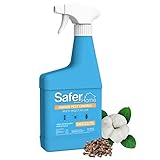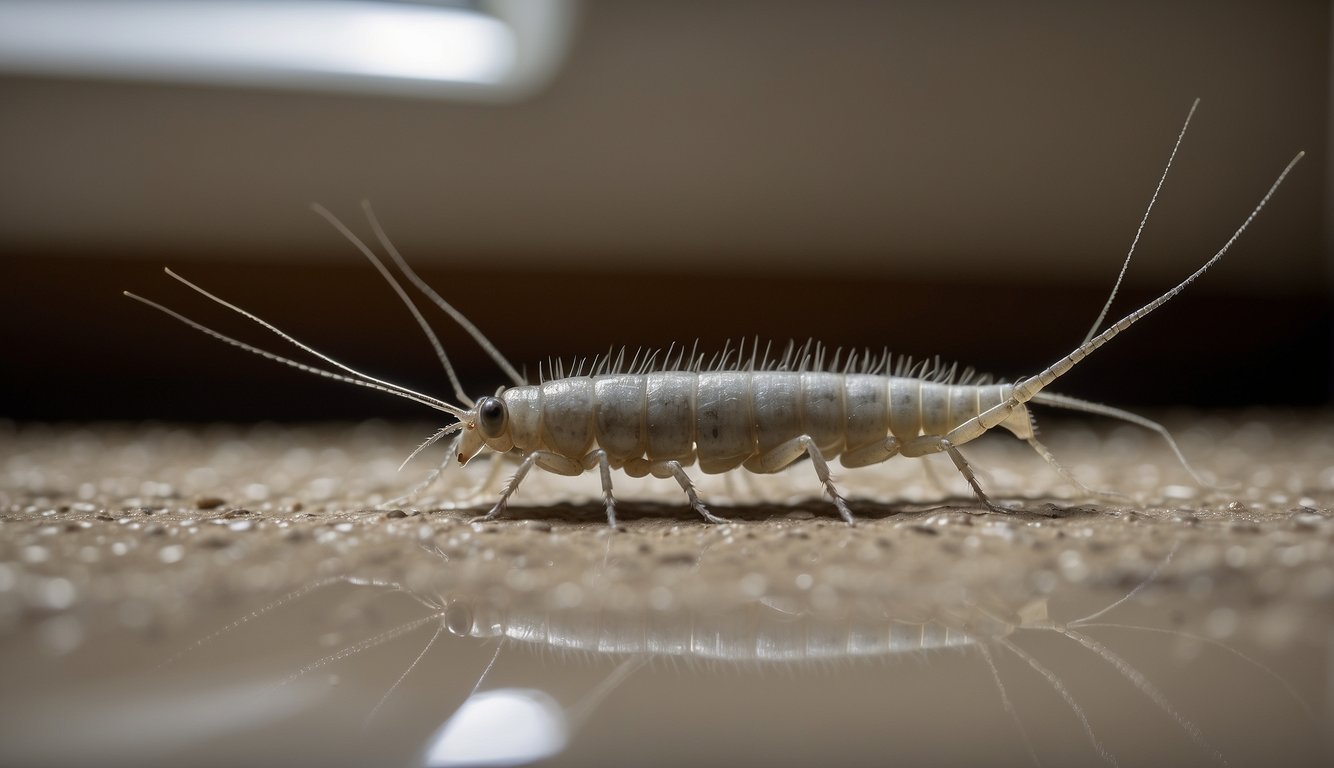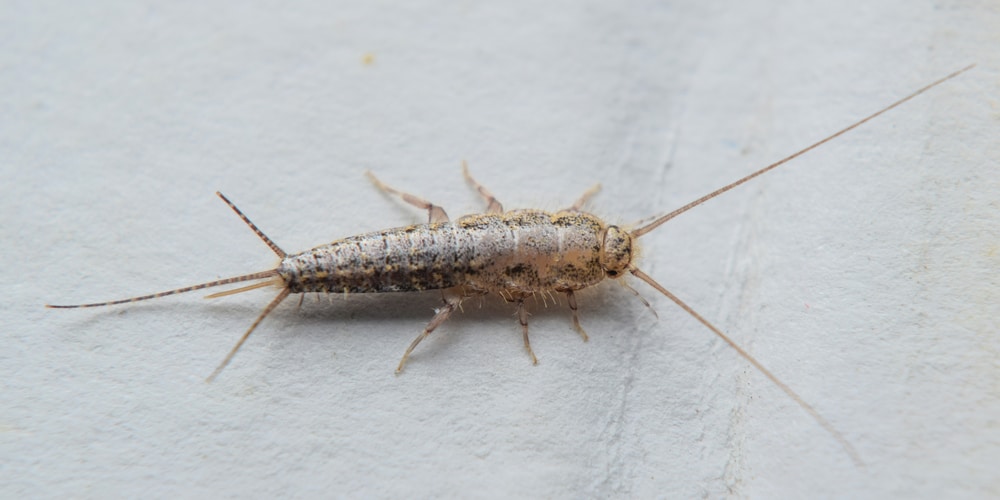Silverfish Identification
Spotting a silverfish can be a bit like unintended treasure hunting in your own home. Here’s your quick guide to recognizing these little critters:
- Size: Typically, they’re about 1/2 to 1 inch long. Not gonna lie, they won’t grow into monstrous bugs, but they’re noticeable.
- Color: Silver or pearl gray is their go-to shade. It’s like they’re prepping for a glam rock concert on the regular.
- Shape: Their body shape resembles a teardrop or a fish, hence the name. Plus, they sport these long antennae and bristle tails.
- Movement: Watch them scuttle! They’re quick and love to move in a fish-like wiggle, which can be oddly intriguing to observe.
- Habitat:
- Love the damp: Check your bathroom, basement, or anywhere that’s got that nice, musty vibe.
- Midnight snackers: These guys are nocturnal. If you’ve got the nighttime munchies, you might spot them joining in for a late-night feast.
When inspecting for silverfish, keep in mind:
- Signs: Look out for feeding marks like notches, holes, or etches in wallpaper, books, or fabrics.
- Droppings: Resembling small black peppercorns, these can be a dead giveaway.
- Yellow stains: Yep, they can leave tiny yellowish marks on materials they’ve munched on.
Keep this info in your back pocket, and you’ll be spotting silverfish like a pro in no time!
Home Remediation Tactics
In your quest to reclaim your home from silverfish, consider both natural and chemical strategies to ensure these critters don’t stand a chance.
Natural Repellents
Natural repellents are your first line of defense—eco-friendly and safe for your household:
- Diatomaceous Earth: Sprinkle this powder in areas where you spot silverfish. It’s lethal to them but non-toxic to you and your pets.
- Cedar or Lavender Oil: Dab cotton balls with these oils and tuck them into corners. Silverfish can’t stand the smell.
For making natural repellents more effective:
- Identify popular silverfish hangouts like damp areas, closets, or bookshelves.
- Apply the repellents consistently for a lasting impact.
Chemical Solutions
When natural methods don’t cut it, chemical solutions can fill the gap. Choose your weaponry wisely:
- Boric Acid: Create traps using boric acid mixed into a sticky paste. It dehydrates and poisons silverfish upon contact.
- Insecticide Sprays: Aim for sprays specifically designed for silverfish and apply according to the manufacturer’s instructions.
Here’s how to make chemical solutions work for you:
- Always wear gloves and a mask for safety when handling chemicals.
- Target the application in crevices, under sinks, and around baseboards where silverfish travel and breed.
Preventative Measures
Before you get out the big guns, remember that the best offense is a good defense. Take these practical steps to prevent silverfish from turning your home into their playground.
Humidity Control
- Deploy Dehumidifiers: Crank up a dehumidifier in moisture-rich areas like basements, bathrooms, and laundry rooms to keep humidity levels below 50%.
- Ventilate Vigorously: Affirmative action for airflow! Install exhaust fans or crack open a window when moisture mounts, especially after a steamy shower or boiling pasta.
Home Maintenance Tips
- Seal the Deal: Scout out and seal cracks or crevices with caulk, particularly around pipes and windows, to slam the door on silverfish entryways.
- Storage Savvy: Transfer your nostalgic newspaper stacks and beloved book collections into sealed containers to safeguard from silverfish snacking sessions.
Cleaning Strategies
Keeping silverfish at bay requires diligence in your cleaning regimen. It’s not only about how often you clean, but also where and how you execute your anti-silverfish mission.
Regular Cleaning Routines
- Maintain a weekly cleaning schedule that includes vacuuming, dusting, and mopping your floors. Target areas where silverfish are likely to hide, such as:
- Under sinks
- In cabinets
- Around bookcases and storage boxes
- Regularly empty and clean kitchen cupboards where crumbs can accumulate and attract silverfish.
Targeted Cleanup Methods
- Focus on eliminating moisture by using dehumidifiers or fans in damp rooms since silverfish thrive in high humidity. Remember to:
- Repair leaky pipes
- Seal gaps in bathrooms and kitchens with silicone caulk
- Make a habit of decluttering storage areas, because piles of paper or fabric can become silverfish havens. Sort through and discard unnecessary items, especially in basements and attics.
Professional Extermination Options
When silverfish turn your home into their playground, it’s time to call in the pros. You might love the great outdoors, but these critters belong outside! Here’s how to reclaim your territory:
- Consultation and Inspection: The exterminator will perform a thorough inspection to find where these sneaky insects hide. Your attic could be their disco, and the basement, their dining hall!
- Treatment Plan:
- Chemical Treatments: These might include liquid insecticides targeting silverfish hotspots.
- Bait and Traps: Like setting up a treasure hunt, only the treasure is lethal bait that lures them in.
- Insect Growth Regulators (IGRs): These disrupt the silverfish life cycle, making it a no-go zone for reproduction.
- Preventive Measures: Post-treatment, your exterminator might recommend ways to keep silverfish from crash-landing back into your space. Think of it as setting up a no-fly zone!
- Follow-up and Maintenance: Schedule regular check-ins to ensure the silverfish don’t declare a rematch.
Frequently Asked Questions
Silverfish can be unwelcome guests, but your FAQ arsenal to fend them off is right here with natural remedies, DIY traps, and understanding their hideouts.
What natural remedies can help repel silverfish in my home?
- Use cedar oil in a spray to deter silverfish, as they dislike the smell. The Spruce suggests combining 10 drops of cedarwood essential oil with 4 ounces of water.
- Diatomaceous earth is a non-toxic powder that, when sprinkled in silverfish-prone areas, can dehydrate and kill them effectively.
Can I create DIY traps to catch silverfish, and if so, how?
- Absolutely! A popular home remedy involves creating a sticky trap using flour and water. Bob Vila details this method by suggesting to spread the paste on cardstock and let it dry.
- Another simple trap involves a glass jar wrapped with tape. Place bait inside and the silverfish can climb in but won’t be able to escape.
Why are silverfish appearing in my bathroom and how can I stop them?
Silverfish seek out moisture, which is why your bathroom might be their hotspot.
- To prevent them, keep your bathroom dry by fixing leaks and using a dehumidifier.
- Regularly vacuum and clean to remove their food sources like hair or dead skin cells.
Are there any specific scents or substances that silverfish despise?
- Silverfish have an aversion to strong scents like cinnamon, cloves, and lavender.
- Scented sachets or soaked cotton balls placed in drawers or shelves can help keep them away.
What is the correlation between seeing a single silverfish and potential infestation?
- Spotting a lone silverfish can be an indicator of a larger problem. These critters are nocturnal and reclusive, and where there’s one, there are usually more hiding.
- Vigilance and regular inspections in dark and damp areas can help you catch an issue before it becomes an infestation.
Is there an appropriate method to eliminate silverfish from my carpets and closets?
- Yes, there are targeted methods to address silverfish in these specific areas.
- For carpets, regular vacuuming with attention to the edges and under furniture is key.
- In closets, Forbes Home recommends using diatomaceous earth along the closet edges. This can be a safe and effective deterrent.
Last update on 2025-06-06 / Affiliate links / Images from Amazon Product Advertising API





